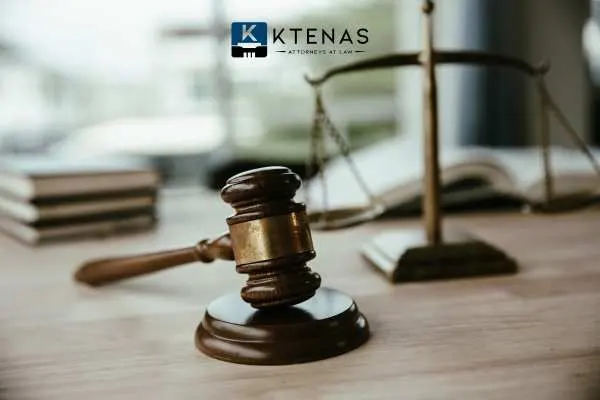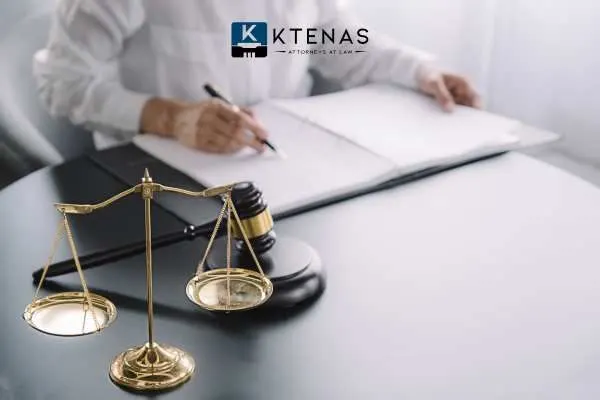
Published:
06/02/2025
Last Updated:
07/18/2025
8 minutes of reading
Call Us Today For a Free Consultation 312-800-1626 312-800-1626


Published:
06/02/2025
Last Updated:
07/18/2025
8 minutes of reading
Your professional license is the foundation of your career, representing years of dedication, education, and hard work. However, this invaluable asset can quickly be jeopardized by consumer complaints, accusations of professional misconduct, or even criminal charges.
If you’re a licensed professional in Illinois facing the threat of disciplinary action, a professional licensing attorney in Chicago is your essential ally.
Don’t risk your livelihood by navigating the complex disciplinary process alone – Contact us today for a free consultation.
When a complaint is filed, or an investigation is initiated, it triggers a detailed disciplinary process that can lead to severe consequences, including license suspension or even license revocation. This is where the expertise of Professional Licence Defense Attorneys becomes critical.
In the State of Illinois, the vast majority of professional licenses are regulated by the Illinois Department of Financial and Professional Regulation (IDFPR). This powerful regulatory agency oversees over 240 different professions, ranging from healthcare professionals like doctors, nurses, and pharmacists, to accountants, real estate brokers, barbers, and engineers.
The IDFPR is tasked with protecting the public, and as such, it holds significant power to investigate complaints, conduct disciplinary proceedings, and ultimately, impose sanctions on professional licenses.

Professionals can face disciplinary action from their respective licensing boards for a wide array of reasons. Understanding these common triggers is the first step in prevention and defense:
This is a broad category encompassing any behavior that falls short of the expected standards of practice for a particular profession. Examples include:
Even if a criminal offense is unrelated to your professional duties, a conviction can still lead to disciplinary action against your license. This is particularly true for felony convictions.
Crimes involving moral turpitude, controlled substances (like unlawful dispensing or illegal use of a weapon), or domestic violence can trigger immediate review by your licensing board. Many boards view criminal activity as indicative of a lack of judgment or trustworthiness.
Issues related to substance abuse, including alcohol or drug addiction, are frequently cited in disciplinary proceedings. If a professional’s ability to practice safely is impaired by substance abuse, the licensing board may impose conditions like mandatory treatment, monitoring, or even license suspension until the issue is resolved.
Each profession operates under specific licensing laws and regulations. Violations can include:
Many disciplinary processes begin with a consumer complaint filed with the IDFPR or the specific licensing board. While some complaints may be unfounded, all are taken seriously and can initiate a formal investigation.
Related: Pharmacist License Defense
Understanding the disciplinary process is key to an effective professional license defense. While details may vary slightly across different professional industries, the general steps overseen by the IDFPR include:
The process typically begins when the IDFPR receives an allegation against a licensee, often through a consumer complaint. An investigation is then initiated by a departmental investigator.
During this phase, the investigator gathers information, reviews documents, and conducts interviews, usually interviewing the complainant and any witnesses first, and the licensee last. It’s crucial not to communicate with the investigator without legal counsel.

After the investigation concludes, the IDFPR may schedule an informal conference, known as a Disciplinary Conference. This is a crucial meeting involving the licensee, their legal counsel, an IDFPR attorney, and often a member of the relevant licensing board (e.g., the Illinois Medical Board for healthcare professionals).
The purpose is to discuss the allegations and explore a potential resolution or settlement without proceeding to a formal hearing. While attendance isn’t always mandatory, having an attorney present is highly recommended as critical discussions about the case and potential outcomes occur here.
If a resolution isn’t reached at the informal conference, or if the IDFPR deems the case severe enough, a formal complaint is filed against the licensee.
This initiates formal disciplinary proceedings, culminating in an administrative hearing before an Administrative Law Judge (ALJ) and potentially members of the licensing board.
This hearing is similar to a court trial, with both sides presenting evidence, calling witnesses, and making arguments. The burden of proof is on the IDFPR to demonstrate professional misconduct by clear and convincing evidence.
Following the formal hearing, the ALJ prepares findings of fact, conclusions of law, and a recommendation. This is then reviewed by the relevant licensing board (e.g., Illinois Medical Board for medical licenses), which makes its recommendation to the Director of the IDFPR.
The Director then makes the final decision regarding the disciplinary action to be taken.
The potential disciplinary actions range in severity:
If the Director’s decision is unfavorable, the licensee has the right to appeal the decision to the Circuit Court.

The moment you receive notice of an IDFPR investigation, a consumer complaint, or an accusation that could impact your professional license, immediately seeking legal counsel from a professional licensing attorney is paramount. Delaying can severely undermine your defense:
Healthcare professionals, including doctors, nurses, dentists, and pharmacists, often face heightened scrutiny due to the nature of their work and access to controlled substances. The Illinois Medical Board and other health care professional boards are particularly vigilant. Allegations such as:
These can lead to immediate and severe disciplinary action. Medical license defense requires a unique blend of legal and, sometimes, medical understanding to effectively challenge allegations and protect your right to practice.
An attorney can also assist with medical staff hearings and credentialing issues that may arise in conjunction with IDFPR investigations.
A professional licensing attorney doesn’t only defend existing licenses. They can also assist with:
Your professional license is your most valuable asset. If you are facing a disciplinary inquiry, investigation, or formal hearing by the Illinois Department of Financial and Professional Regulation or any professional licensing board, do not hesitate.
The sooner you engage a knowledgeable Chicago professional licensing attorney, the stronger your position will be to defend your career and maintain your professional standing.
Contact our attorneys today for a confidential consultation to discuss your specific circumstances and develop a strategic plan to protect your livelihood.



